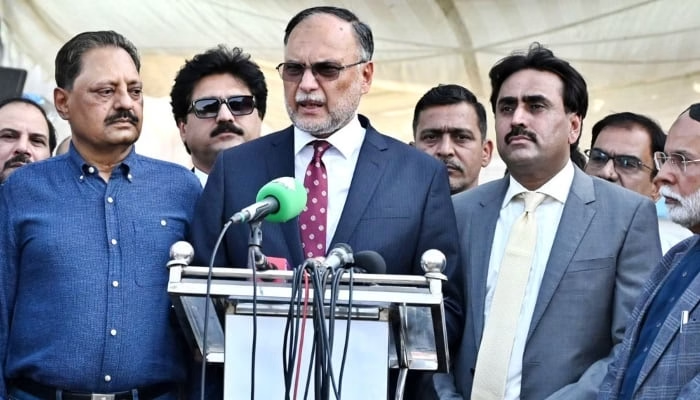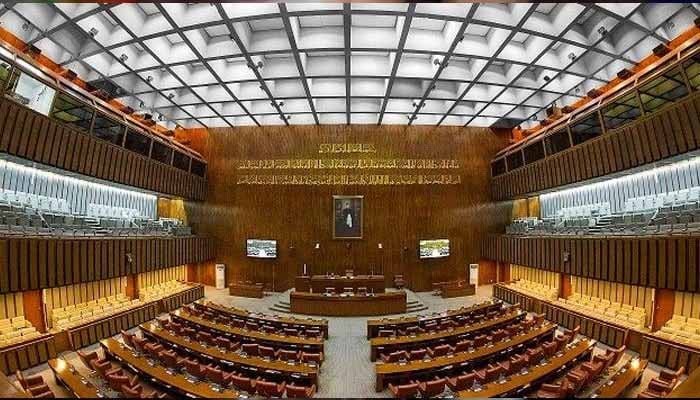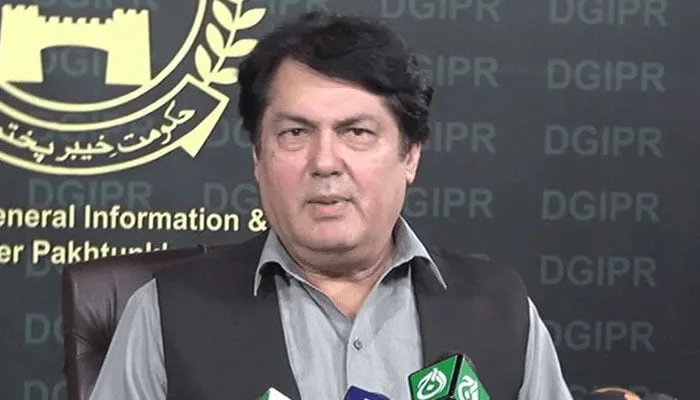Federal Minister for Planning Ahsan Iqbal stated on Monday that the proposed 27th Constitutional Amendment can only move forward once a broad political consensus is achieved. His remarks come amid growing discussions within political circles about potential changes to the Constitution. Speaking to journalists in Karachi, Iqbal refrained from sharing specific details about the proposed amendment, emphasizing that “it would be premature to comment before a consensus is achieved.” The statement highlights the government’s cautious approach to any constitutional reform, especially one that may reshape key aspects of governance.
Background on the 27th Constitutional Amendment
Speculations regarding the 27th Constitutional Amendment began circulating after Federal Minister for Food Security and Research Rana Tanveer Hussain hinted last month that the government was considering revisiting the 18th Amendment. The goal, he said, was to align the country’s governance structure with current administrative and development needs. Following this, Punjab Assembly Speaker Malik Ahmed Khan also voiced support for introducing the 27th Amendment, suggesting that it could help strengthen local governments by ensuring timely elections and enhancing their political, administrative, and financial autonomy. The renewed focus on constitutional reform reflects ongoing concerns about the distribution of powers between the federal and provincial governments, as well as the efficiency of local governance systems.
PPP Confirms Talks with PML-N Over Proposed Amendment
Adding momentum to the debate, Pakistan Peoples Party (PPP) Chairman Bilawal Bhutto-Zardari confirmed that the ruling Pakistan Muslim League-Nawaz (PML-N) had approached them for support on the 27th Constitutional Amendment. In a post on social media platform X (formerly Twitter), Bilawal stated that Prime Minister Shehbaz Sharif led the PML-N delegation in a meeting with President Asif Ali Zardari and himself. During the meeting, the PML-N presented several proposals related to the amendment, including the establishment of a Constitutional Court and revisions to Article 243, which currently grants the president the supreme command of the Armed Forces. Other proposed changes discussed in the meeting reportedly involved introducing executive magistrates, allowing for the transfer of judges, and reviewing provincial shares in the National Finance Commission (NFC) Award. These proposals indicate that the 27th Constitutional Amendment could bring about significant changes in the balance of power between institutions if approved through political consensus.
Balancing Governance and Consensus
While the proposed amendment has sparked interest, Ahsan Iqbal reiterated that no concrete steps would be taken without mutual understanding among all political parties. His stance reflects the government’s acknowledgment of Pakistan’s fragile political climate and the potential risks of unilateral decision-making on sensitive constitutional matters. Analysts believe that the 27th Constitutional Amendment debate may serve as a test of political cooperation between major parties. Both the PML-N and PPP appear willing to engage in discussions, but their differing perspectives on power decentralization could complicate negotiations.
Broader Vision: Economic and Maritime Development
Beyond constitutional reforms, Ahsan Iqbal also highlighted Pakistan’s ambitions to transform into a major regional maritime trade hub. Speaking at the inauguration of the Pakistan International Maritime Expo and Conference (PIMEC) in Karachi, he announced that the government was modernizing major ports, including Karachi Port and Port Qasim, to strengthen the country’s blue economy. Iqbal stated that Pakistan holds vast potential for foreign investment in key sectors such as energy, information technology, and minerals. He emphasized that the country’s coastal and maritime resources, if properly utilized, could become a cornerstone of sustainable economic growth. The prosperity of the world depends on the effective use of marine resources. Pakistan has been blessed with access to the sea, which can become a powerful driver of economic growth, he noted.
The Road Ahead for Pakistan’s 27th Amendment
The discussions surrounding the 27th Constitutional Amendment highlight a crucial moment for Pakistan’s democratic and governance evolution. While the proposals promise structural reforms — such as the creation of a Constitutional Court and strengthened local governments — their success hinges entirely on achieving political consensus among key stakeholders. As Ahsan Iqbal pointed out, constitutional amendments cannot and should not proceed without national agreement. The coming weeks may determine whether Pakistan’s political leadership can bridge divides to pursue a shared vision for governance reform and institutional stability. At the same time, the government’s focus on expanding maritime trade and economic modernization reflects a broader agenda to position Pakistan as a regional hub for investment and growth — provided that political cooperation remains intact.



